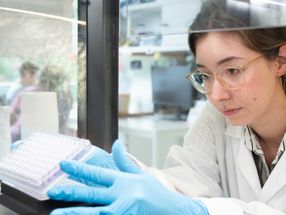Diversa acquires antifungal program from GlaxoSmithKline
Advertisement
Diversa Corporation announced that it has acquired an antifungal program consisting of preclinical compounds from GlaxoSmithKline (GSK) in exchange for Diversa equity. Under the terms of the agreement, Diversa issued 806,873 shares of Diversa Common Stock to GSK as consideration for the transaction. Diversa received worldwide rights to the program, which consists of preclinical antifungal compounds and lead candidates for development, marketing, and distribution.
"The acquisition of this GSK antifungal program represents an investment in a promising compound collection and provides a basis for accelerating the development of our pre-clinical and clinical infrastructure," stated Jay M. Short, Ph.D., President and Chief Executive Officer of Diversa. "We were pleased to identify an opportunity that met our criteria for acquisition. This acquisition from GSK represents an excellent balance of value, cost, and strategic fit with our internal pharmaceutical programs and anti-infective focus."
The acquired, naturally-derived antifungal compounds have a novel mode of action and belong to a new chemical class called "sordarins" that is expected to be differentiated from existing azole, polyene, and/or echinocandin antifungal products. Lead candidate molecules from the program have been selected based upon their broad activity spectrum and favorable safety profile. These compounds are fungicidal and are expected to permit both intravenous (hospital) and oral (outpatient) administration. Extensive preclinical data generated by GSK supports the potential of this class of compounds to address unmet needs in the antifungal market. Upon completion of additional preclinical studies, Diversa expects to file an investigational new drug (IND) application in 2004.
The worldwide market for treatment of invasive fungal infections is estimated to reach $2.4 billion in 2003 and to grow to $3.1 billion in 2008. For hospital indications, mortality rates associated with invasive fungal infection remain high. Existing products have serious shortcomings including low tolerability, drug delivery limitations, and drug-drug interactions. There remains a significant need for a broad-spectrum therapy with an improved safety profile.
"Taking these compounds from nature and applying GSK's state of the art drug discovery expertise enabled us to develop a portfolio of novel agents with the potential to improve antifungal therapy," said Dr. Federico Gomez de las Heras, head of the GSK team that developed this new class of antifungals. "In Diversa, we believe we have identified a partner that has a strong team, significant resources, and a strategic commitment to the development of novel anti-infectives."
"Having previously led this anti-infectives group at GSK, I had the opportunity to oversee the early development of these novel antifungal compounds, which were differentiated by their broad spectrum of activity and favorable safety profile," said Gary Woodnutt, Ph.D., Senior Vice President of Pharmaceutical Research & Development at Diversa Corporation. "Now, at Diversa, I am pleased to continue advancement of these compounds in conjunction with our promising internal small molecule program focused on developing novel anti-infectives from unexplored natural sources."

























































